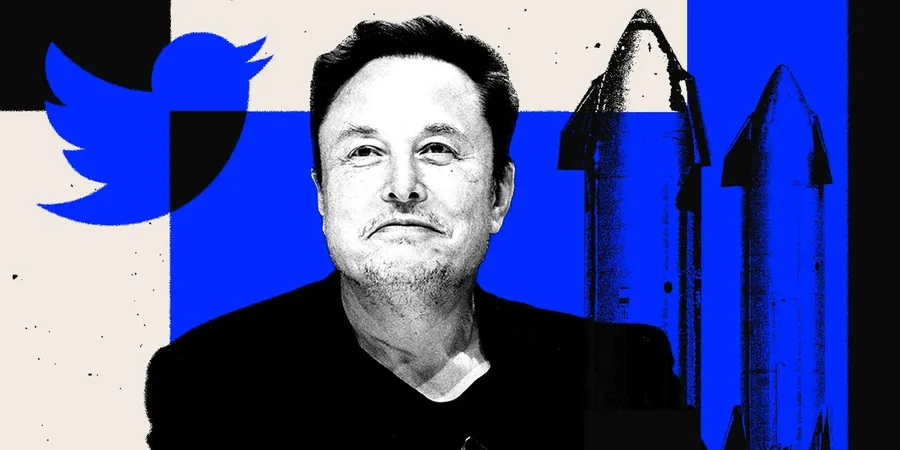
Elon Musk’s Autocratic Leadership Propelled SpaceX to New Heights, but His Political Obsessions May Be Its Downfall - A Deep Dive into Eric Berger's 'Reentry'
2024-09-27
Overview
In the newly released book "Reentry," veteran space journalist Eric Berger explores the astonishing ascent of SpaceX following its inaugural rocket launch. His insights reveal that while Elon Musk played a pivotal role in the company's success, his recent political inclinations and social media pursuits could jeopardize its future.
SpaceX's Innovations
SpaceX is a beacon of innovation in the space industry, revolutionizing space travel with its reusable rockets and ambitious plans to colonize Mars. Musk's hands-on management style, often described as "autocratic," has contributed to the company securing 90% of the mass in orbit and vastly outpacing its competitors, launching more satellites than any other company by a staggering tenfold margin. This has established SpaceX as the defining narrative of spaceflight in this century.
Eric Berger's Research
Eric Berger conducted thorough research for "Reentry," engaging with around 100 current and former SpaceX employees and being present at many of the company's launches. In his discussions with Business Insider, he emphasizes that while Musk's leadership has driven SpaceX's engineering feats, his new political direction could alienate a substantial portion of the public and stakeholders, raising concerns for the company’s ongoing success.
Workforce Experience
Berger notes that SpaceX's workforce has been subject to demanding conditions. Former employees recount tales of long hours and challenging work environments, suggesting that competitive pay often accompanied these arduous conditions. Despite the intense labor, many employees are drawn to the opportunity of being involved in groundbreaking projects that are shaping the future of space travel.
Management Style Concerns
Musk's management approach has raised questions about whether he should reconsider his style. Berger believes it’s unlikely Musk will adapt, particularly as his methodologies have proven effective over the years at both SpaceX and Tesla. However, the author cautions that Musk's current political activism could harm his brand and SpaceX’s reputation, potentially leading to unforeseen consequences.
Internal Dissent
While many employees still firmly believe in SpaceX's mission, there have been burgeoning discontent and dissenting voices within the organization. The recent allegations of workplace harassment have made headlines, indicating that not all employees share the unyielding loyalty to Musk and his vision.
Political Ideology Shift
Berger also reflects on Musk's shifting political ideology, noting how a decade ago, he was more aligned with progressive agendas and libertarian ideals, frequently engaging with the Obama administration. Now, Musk’s hard rightward turn poses questions about potential governance structures if human life is established on Mars. This raises concerns about the type of civilization that may evolve there—would it embrace ideals of cooperation and community or devolve into chaos?
Innovative Processes Misunderstood
Amid public speculation fueled by test flights that occasionally end in explosions, many misunderstand the innovative processes at play within SpaceX. Berger likens the company to a 'mullet'—business in the front, where launches are executed with precision, and a party in the back, characterized by the experimental nature of projects like Starship. Despite setbacks, the company's mature side thrives, executing mission-critical launches effectively.
Conclusion
"Reentry" presents a nuanced view of SpaceX’s trajectory—while it celebrates the landmark achievements of the company, it also serves as a cautionary tale about the potential vulnerabilities created by its leader's personal journeys and choices. As Berger eloquently puts it, understanding the intricate dynamics of SpaceX is essential in appreciating the broader narrative of human advancement in space exploration.

 Brasil (PT)
Brasil (PT)
 Canada (EN)
Canada (EN)
 Chile (ES)
Chile (ES)
 España (ES)
España (ES)
 France (FR)
France (FR)
 Hong Kong (EN)
Hong Kong (EN)
 Italia (IT)
Italia (IT)
 日本 (JA)
日本 (JA)
 Magyarország (HU)
Magyarország (HU)
 Norge (NO)
Norge (NO)
 Polska (PL)
Polska (PL)
 Schweiz (DE)
Schweiz (DE)
 Singapore (EN)
Singapore (EN)
 Sverige (SV)
Sverige (SV)
 Suomi (FI)
Suomi (FI)
 Türkiye (TR)
Türkiye (TR)